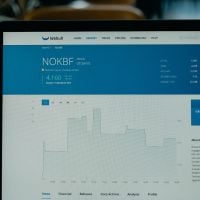Deadline: 27-Feb-2024
Applications are now open for the Hillman Emergent Innovation: Serious Illness and End of Life (HSEI) program to accelerate the development of bold, nursing-driven interventions that improve the health and healthcare of marginalized populations.
These populations include the economically disadvantaged, racial and ethnic minorities, LGBTQ+ people, people experiencing homelessness, low-income rural populations, and other groups that encounter obstacles to accessing quality healthcare services.
The HSEI program seeks proposals for innovative, early stage nursing-driven interventions that:
- Challenge conventional strategies for delivering and improving care to marginalized populations in the United States
- Demonstrate potential as a best-in-class intervention
- Narrow gaps in health equity
- Show potential for scalability
Additional priority consideration will be given to proposals that include one or more of the following:
- Build trust and credibility in programs or systems of care
- Engagement of patients, families, caregivers, and/or community organizations
- Inter-professional or multidisciplinary collaboration
- Institutional and community partnerships
- Provision of care in non-hospital settings
- Measurable goals and outcomes
Funding Information
- Thanks in part to the ongoing partnership with The Arthur Vining Davis Foundations, this program will award a $50,000 grant each to up to ten (10) organizations. Project duration is 12–18 months, with an expected start date of January 1, 2025. Grant payment will be made in full by December 31, 2024.
- Awards greater than $50,000 may be granted in rare cases at the Foundation’s sole discretion and by invitation only.
Deliverables
- The project leaders funded under this effort will be expected to provide the deliverables listed below:
- Provision of one (1) written report to demonstrate project progress and success. This report will capture a clear assessment of the impact of the project and identify social, cultural and other barriers to expanded implementation.
- Availability for periodic updates, including conversations via teleconference and (in special circumstances) informal site visits.
- Dissemination of knowledge through publications in peer-reviewed literature, etc.
- Participation in a brief evaluation survey up to two years after submission of the final report to assess the ongoing impact of the grant.
Who Should Apply?
- They believe that transformative ideas are as likely to come from community health clinics as they are from major academic research centers.
- They welcome applications from institutions and care settings from across the spectrum of care, and from practitioners representing a diverse range of backgrounds.
Eligibility Criteria
- U.S. 501(c)(3) non-profit organizations that are not classified as private foundations (proof of qualifying non-profit status, such as a tax-exempt determination letter from the Internal Revenue Service, is required)
- International organizations that are the equivalent of U.S. 501(c)(3) organizations that are submitting a project that focuses on serving marginalized populations within the United States
- Government entities
- Faith-based organizations that welcome and serve all members of the community regardless of religious belief
Ineligible
- Individuals
- Organizations that discriminate on the basis of race, color, religion, gender, national origin, citizenship status, age, disability, sexual orientation, or veteran status
For more information, visit The Rita and Alex Hillman Foundation.









































